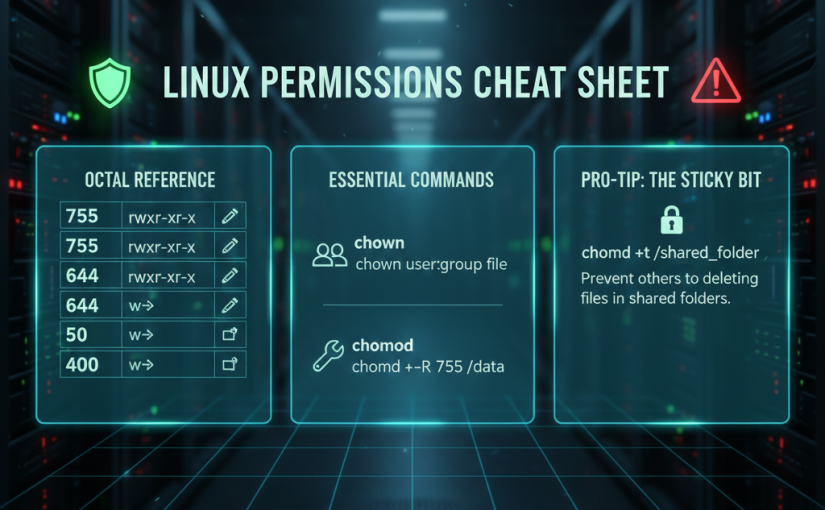In a world where operating systems seem to grow larger and more complex with every release, Alpine Linux stands out by doing the exact opposite. If you’ve spent any time in the DevOps or Docker world, you’ve likely seen Alpine mentioned as the “gold standard” for container images.
Continue reading Alpine Linux: The Minimalist Powerhouse of the CloudTag: Tips
Linux Permissions Cheat Sheet
This cheat sheet focuses on the most common permission sets you’ll encounter when managing Linux systems, backups, and hypervisors.
Continue reading Linux Permissions Cheat SheetUnearthing Your Kernel’s Secrets: A Guide to the dmesg Command
Have you ever wondered what your Linux kernel is up to behind the scenes? Or perhaps you’ve encountered a mysterious hardware issue and wished you had a window into its initialisation? Enter the dmesg command – your trusty companion for peeking into the kernel’s message buffer.


